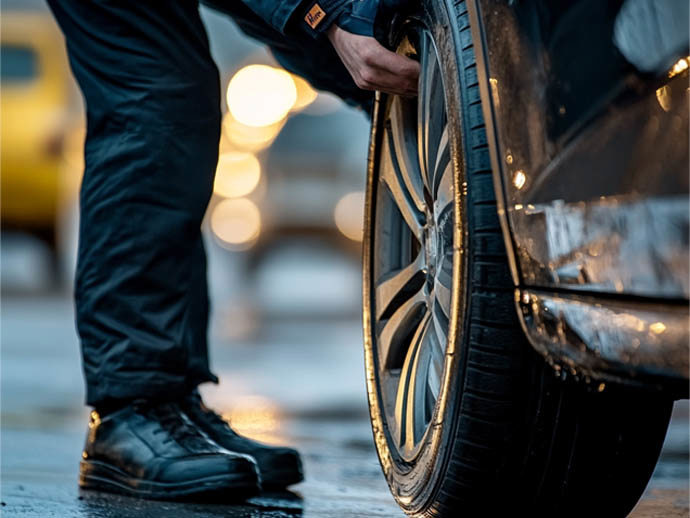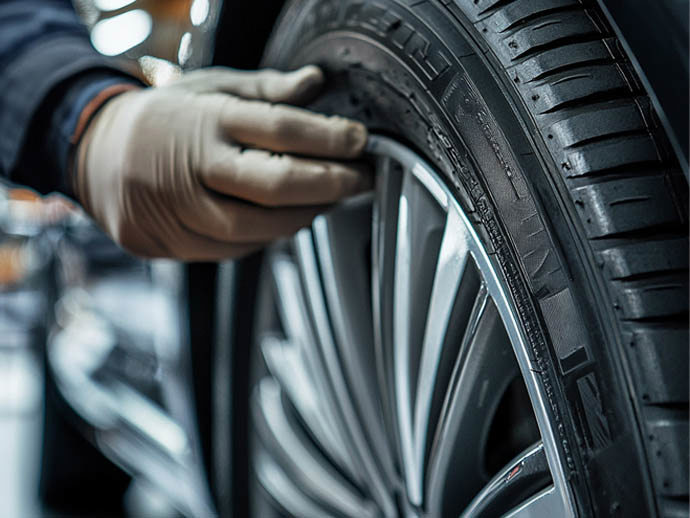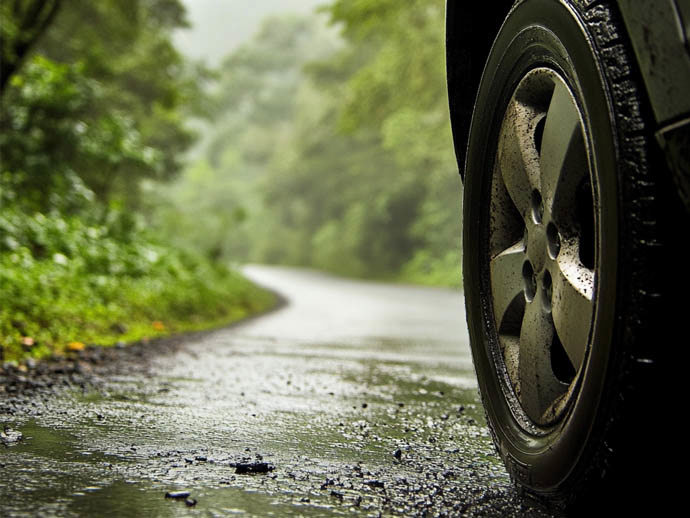
There’s nothing worse than getting in your car to drive and having a flat tyre. It’s not only impractical but can cost you a fair amount.
According to Checkatrade, the cost of a new tyre can range anywhere from £50 for budget tyres and up to £700 for premium tyres.
Part worn tyres are a cost-effective solution. However, while the prospect of saving money may be tempting, it’s crucial to weigh the risks and benefits.
In this blog, we’ll guide you through the key factors to consider when buying part worn tyres, including:
Part worn tyres are second-hand tyres that have been removed from a vehicle and resold for further use.
Typically, worn tyres are from cars that have been written off, imported, or have had their tyres replaced. According to the Tyre Industry Federation, around five million of all tyres purchased in the UK are in the part-worn category.
While they are a lot cheaper than new tyres, usually around half of the price, their quality and remaining lifespan are significantly less. This makes it essential that you fully understand what you’re getting into if you opt for part worn tyres.
Yes, in general, part worn tyres are safe (as long as they have been thoroughly inspected). However, although they are much cheaper and seem like a viable option, it’s essential that you consider the safety implications. Your tyres are one of the most important parts when it comes to car safety, so ensure you don’t overlook them.
1. Tread depth
One of the first things you should look out for on a part worn tyre is tread depth. All tyres in the UK must have a tread depth of at least 1.6mm, so that’s the first place to start.
We’d recommend going for a part worn tyre of at least 3mm to ensure it will last for a relatively long time and still provide decent road grip.
2. Structural integrity
Once you’ve had a look at tread depth, take a step back and actually look at the tyre. The structural identity of a part worn tyre is equally vital, and you should look for signs of damage such as bulges, cuts, or puncture repairs.
Any structural damage could make the tyre’s performance worse, especially in poor weather conditions.
3. Tyre age and degradation
Like a lot of car parts, tyres also degrade over time. Even though a part worn tyre may look in pretty good shape, it could be eight years old, and does anyone want an eight-year-old car tyre?
You can check a tyre's DOT code on its sidewall to find out its manufacturing date. We’d recommend going for a tyre six years or younger.
We recommend speaking to a reputable mechanic before making a decision regarding a part worn tyre. Ask them for their advice and get their expert opinion.

Part worn tyres must have a tread depth of at least 2mm to be sold in the UK. They also must clearly show the relevant ‘E’ mark and have ‘PART WORN’ in uppercase letters.
Apart from that, they are subject to the same conditions as normal tyres.
Pros of part worn tyres:
- Cost savings - The main reason people go for part worn tyres is that they are cheaper. They are much cheaper than new tyres and are ideal for those on a budget.
- Environmental benefits - Choosing part worn tyres is essentially recycling, as you are using something that was heading for the bin.
Cons of part worn tyres:
- Potential safety risks - Because they have been previously used, the risk of hidden damage and compromised structural integrity means that they are not always the safest tyres.
- Uncertain history - Part worn tyres have an unknown history, and there’s no guarantee how and why they were used before.
- Shorter lifespan - Thanks to reduced tread depth and more wear, part worn stay road legal for much less than a brand new tyre.

It will ultimately depend on the condition of the tyre. The newer the tyre, the better condition it will be in and the longer it will last.
On average, we’d expect a part worn front wheel tyre to last 15,000-20,000 miles before needing to be replaced. For rear wheel tyres, I’d expect a mileage in the 30,000s.
If you’ve been convinced to opt against part worn tyres, here are the options available:
- New tyres - The most obvious choice is to get new tyres. Yes, they are more expensive, but they are much more reliable and last for longer. If money is a concern, you can opt for budget new tyres which typically cost between £50 and £70.
- Seasonal tyres - Keep an eye out for seasonal sales or promotions on new tyres. This can help you find a good deal without compromising on quality.
- Refurbished tyres - Some tyre retailers offer refurbished tyres, which have been professionally retreated to meet safety standards.
Buying part worn tyres is good for those looking to save money while still getting a relatively good tyre in decent (albeit second-hand) condition.
However, it’s essential that you understand the potential risks and reduced lifespan of part worn tyres. Ensure you thoroughly inspect the tyre and understand the legal requirements before buying.
Looking for more maintenance advice? Check out our Caring For Your Lease Vehicle guides, discussing everything from fuel economy to winter vehicle care.
We are also one of the UK’s largest car leasing brokers, offering a range of leasing deals to suit your every need. Call us on 0345 811 9595 or check out our leasing deals to find out more.
Originally posted: 14th October 2024

